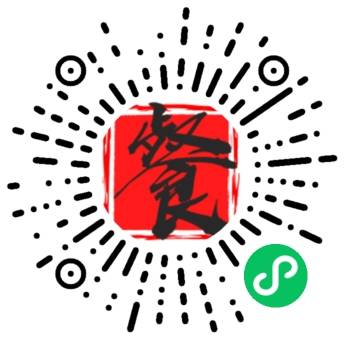▲Replynumber “3” to join in F&B WeChat Group
Source:LinkedIn
Author:Sam Gao
Cheese is entering a new phase of market penetration in China as one major Chinese fast food chain is adopting it in wonton, a kind of dumplings eaten with soup dating back to some 2,000 years ago.
Gil Wonton (吉祥馄饨), the sixth largest Chinese fast food chain boasting sales of around CNY 1.2 bn (USD 171 mn) in 2015, is quietly promoting its cheese-flavoured wonton in its nearly 3,000 outlets in more than 40 cities in China. Promotion is going on concurrently in the online channel, such as Meituan and Dazhong Dianping.
The chain launched cheese-flavoured wonton in May 2016, but started putting up posters and offering special prices only entering 2017. The product, using bacon and cheese as main stuffing in thin wheat flour wrappers, is not boiled and served in soups like conventional wonton, but steamed and placed on a plate, and with salad sauce sprinkled on them.The product overall carries more of a Western semblance and is rather a crossover of Chinese and Western culinary traditions. It has attracted some curious consumers to try it and reactions were mixed. In the comments in Dazhong Dianping, some said they didn’t like it, others expressed varying degrees of appreciation. One wrote: “there was not enough bacon, the cheese flavour was not thick enough, but the way wonton is made is interesting, and in general, quite delicious!” (馄饨里面的培根并不是很多,芝士味道也不算太浓,但是这样的吃法真的挺有意思的,挺好吃。)
Previously as much as some 80 per cent of cheese consumed in China was via bakeries, Western-style restaurants, cafes and bars. Fonterra claims that it supplies the bulk of mozzarella cheese for more than 300 million pizzas that’s sold in China every year.
Small-packaging cheese on the retail channels are also enjoying strong sales, which mainly target children. The retail channel sales of cheese was believed to be around CNY 1 bn (USD 143 mn) last year. According to Kantar Worldpanel, cheese sales grew nine per cent during the year ending in November 2016, during which 14 per cent of urban households bought cheese, a ratio that represented an increase of only 0.4 percentage points year on year.
By using cheese as ingredient, Kantar said, Nabati of Indonesia soared into the top three imported brands in biscuits last year – 8.6 per cent of urban households boughtNabatiwaffles in the year ending November 2016, while a year earlier, only 3.4 per cent did.
If cheese has done magic to waffles as in the case ofNabati, will cheese do so to wonton?
Even without entering the Chinese food products, cheese is guaranteed to enjoy fast growth in China thanks to deepening penetration of Western style restaurants, cafes and bars. Joining foreigners who open such catering services are an increasing number of local Chinese across the country, even in remote places like Northwest China’s Xinjiang. A growing number of food manufacturers are also producing frozen pizzas to compete with Dr. Oetker.
Contracts of importing cheese and liquid milk from New Zealand into China reached the touch-off point at the of the fourth day in the past January, whereat the zero tariff automatically changes to 12 per cent, as per agreements between China and New Zealand. China’s import orders for butter and milk powder (as raw material) hit on the touch-off point on 10 January and 11 January respectively.
Now with cheese added into wonton, it is highly likely that soon cheese is going to be adopted as ingredient in many other similar Chinese food, such as dumplings, baozi, and pies with meat stuffings. This forebodes more severe shortages for cheese, which is dominated by foreign brands, and local supplies by Mengniu, Yili, Sanyuan and a few other brands are small and unsteady. Then the question is: have the cheese manufacturers got ready for this burgeoning demand?
Around 100 metres east of the Gill Wonton outlet is one of the many Chinese restaurants serving baozi and the like. I think of Percy Shelly’s poem: If winter comes can spring be far behind? I adapt it into: if wonton has started using cheese, will baozi and dumplings not be far behind in doing so? In a way, wonton may prove to be the “open sesame” of cheese into the world’s biggest yet still fast-growing market – China.
Tips:
* Have brilliant articles to contribute? Feel free to contact Mote Chan (WeChat ID: motechenfbif).
/ Related Articles /
Marking Awards 2018 Application Officially Starts
DuPont Announces 2017 Packaging Innovation Award Winners
The Pentawards 2017 Packaging Design Award Winners– F&B Category
Food & Beverage Innovation Forum 2018 / FBIF2018(Click to read more), themed as “the Rising of New Categories“,will be held in April 18th to 20th in Shanghai, China.FBIF2018 is a three day conference consists ofPlenary Sessionon Day One and four parallel sub-forums on Day Two and Day Three, sub-forums are respectivelyProduct Innovation A,Product Innovation B,Marketing InnovationandInnoPack. Previous FBIF has successfully attracted leading F&B brands such as Coca Cola, PepsiCo, Mondelez, COFCO,Master Kong, UNI-PRESIDENT, Yili, Royal FrieslandCampina, Abbott, Meiji, Mars, Cargill, Glico and Unilever etc. 1800 senior executives from F&B industry are expected to attend FBIF2018.Please reply“FBIF“at the main menuto get more information.
/WeChat Groups /
Add Ada Chen(ID: 15021839607)to join inCEO, CMO, Chief R&D Officer, Functional Foods,FSMP,Infant Food, Dairy, Alcohol,Catering,Beverage,Snacks,Marketing,Dairy,
R&D,Packaging,Design,etc. WeChat groups(Group members include seniors from Nestle, Coca-Cola, PepsiCo, AB-InBev, Yili, Mengniu, Master Kong and Nongfu Spring etc.)
▲follow us and”Sticky On Top“
原创文章,作者:网络转载,如若转载,请注明出处:https://www.qiyu88.com/188154.html















